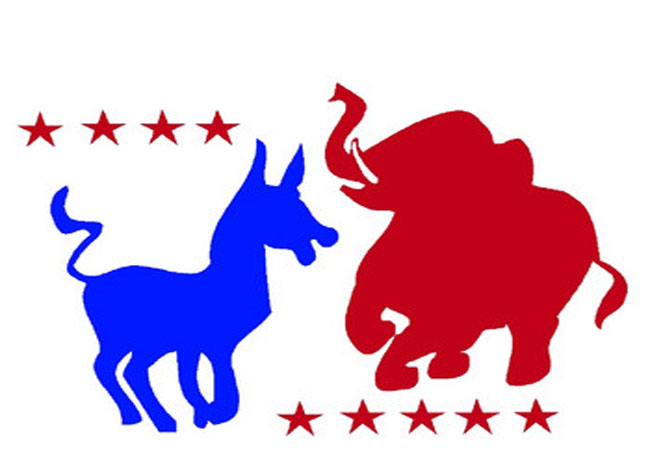With the 2012 Presidential Election only days away, students and teachers alike have found political discussion to be the focused center amongst conversations in and out of class. Even though only a select number of AHS students are eligible to vote in the next election, many have already formed their own viewpoints and have decided which candidate they would vote for. However, as students do form their own viewpoints, they struggle with forming that opinion without any outside influences. Family members, friends and social media have all been major influences on the political affiliations of AHS students, but perhaps teachers have an impact as well. The question arises regarding whether a teacher’s political opinion influence is a problem on allowing students to think-freely, and whether or not teachers should share their own political affiliations with their students.
“We as teachers tell students what our biases are,” government teacher Fred Zuniga said. “We are honest, but we are also informative, and make sure that both sides of the election are covered.”
Some students feel that teachers do stress their political affiliations during class, but it is not necessarily a vice.
“I find that history teachers often tell us what they believe in, even if they try and stay objective, their opinions do show through,” freshman Brian Chung said. “For me personally, I think that I am influenced by what the teachers say, but this is a benefit. I care about the elections, and the teachers’ opinions just give me something new to think about when forming my own opinion.”
“My government teacher is vocal about his opinion,” senior Angela Armstrong said. “Even though [my teacher] is biased, he does give both sides when he is teaching. He is here to inform us about politics, not to tell us what we believe in, and he does a good job with that.”
Students currently in government class have recently completed a project looking up the positions of both presidential candidates Mitt Romney and Barack Obama. Along with looking up the positions on issues, students also watched two of the four presidential or vice presidential debates and campaign commercials.
“This project forces students to become aware of political issues, and are able to form their own opinions,” Zuniga said.
Some students have been very active in the political scene, and have formed their own opinions, such as senior Beatrice Ohene-Okae, who has been volunteering and campaigning at a Democratic office in Washington, D.C. for a year.
“I have been going to politicial rallies and canvassing for Barack Obama,” Ohene-Okae said. “It has been an incredibly fulfilling experience and I’m so glad that I am helping to get out the vote.”
Though students have been able to form their own political viewpoints, some do feel that teachers being too vocal about their political viewpoints can be detrimental.
“For anyone who doesn’t really understand politics yet, or hasn’t taken government yet, this can make an impact and affect them,” junior Nikita Coelho said. “For me, I don’t see teachers stating their opinions as a problem. I might disagree with what they say, but it doesn’t offend me and it doesn’t change my opinion. I do know that some people who are younger and struggle with what they believe in are easily influenced by what their teacher say.”
Senior Katie Mock is one of the select AHS students who can vote in this upcoming election. She has stressed that her decision for who she is going to vote for has been her own decision.
“I have a viewpoint where I understand both sides of the argument from Democrats and Republicans,” Mock said. “Yes, I have conservative values, but in the end, my vote is my decision.”
Though Mock has been able to form her own opinion, she does admit that her parents have had an influence on her rather than teachers.
“Teachers can have an influence on students, but not a heavy one, and not on me,” Mock said. “It is my parents who have the heavier influence, because I have spent 18 years of my life with them, and only one year with most of my teachers. Even if teachers did have an influence on me, it wouldn’t be a strong one.”
Mock who is also an IB Diploma, does not see IB teachers as being too vocal about their political opinions, even though the IB curriculum is centered around forming opinions.
“You would think that with IB teachers, their opinions would be voiced heavily, they do voice their opinions, but not in a harmful way,” Mock said. “They are more informative on political issues than anything else.”





